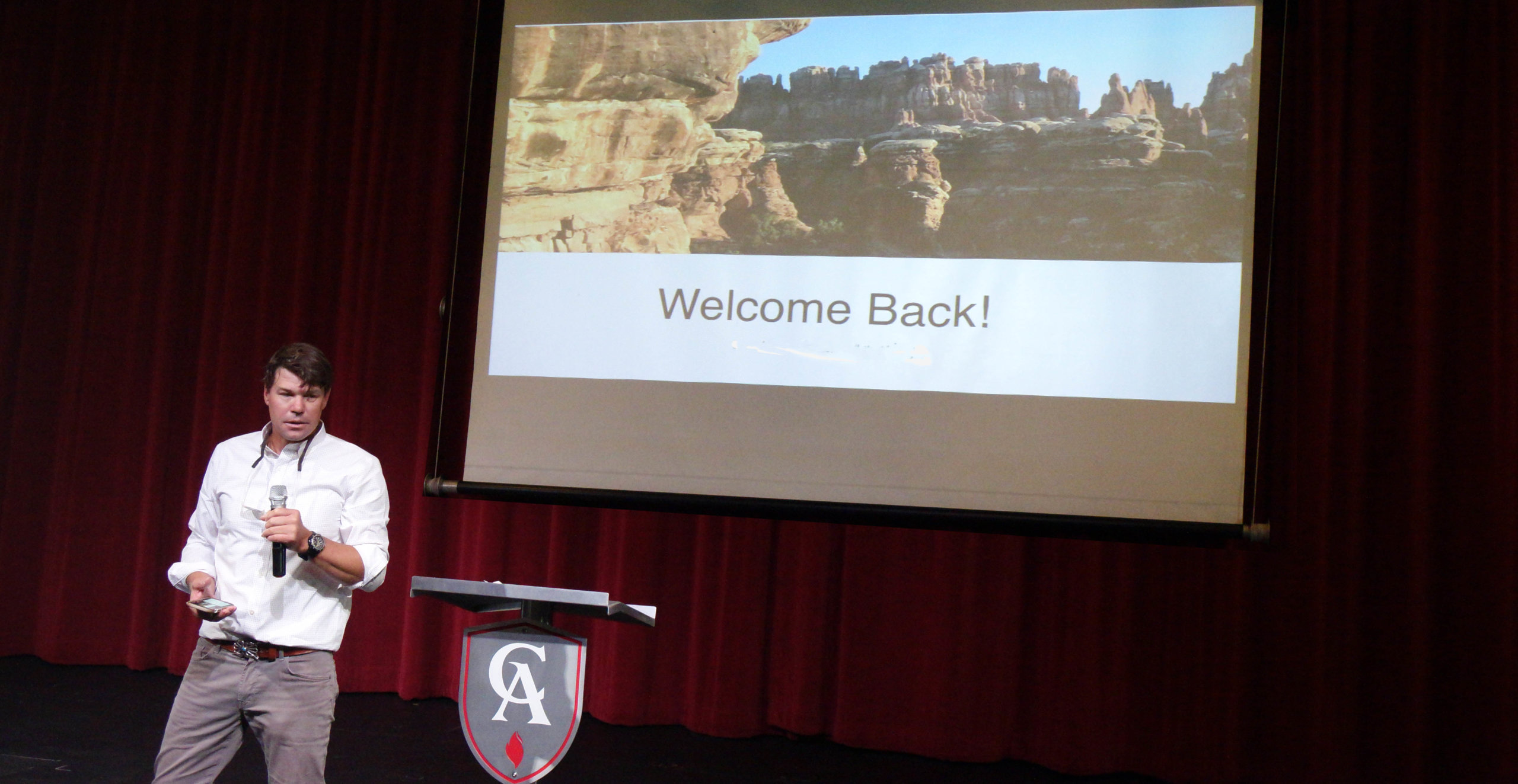As we embark upon this new year, every member of our school community will need to learn to live in a world we cannot control. For many educators, this is not a good feeling. We tend to like the predictability of school. We have our syllabi and course goals. These provide a road map for our year and our lives. We have our annual calendar that provides even more stability. We know that when times of academic pressure occur, all we have to do is look forward to various rallying moments of long weekends or cherished school traditions that uplift everyone’s spirits. Our students and parents also value the predictability of the school cycle. Last spring, even when we couldn’t be in school in person, the rhythm and routine of school was something that provided comfort. Routine provides security and allows for students to engage more deeply in their learning.
Giving up control doesn’t mean not having a routine or letting go of goals. I think both are critical for young people. Yet even as I write this, I think about how can I, as an educator, exist in a fluid, fast-changing world? How do I lead an institution in a time of crisis? What can I control, and what is beyond me? COVID-19 has been somewhat humbling in that regard. This pandemic has changed all of our lives so quickly, that it is actually hard to keep track of all the implications of this immense change. There are times when I get frustrated by this entire situation. I have a clear vision of what a great school should be about. For me, it is all about fostering intellectual curiosity by encouraging human connection. We cannot be deterred from that goal—even in a pandemic. I truly believe students need to be in school and to be engaged in their learning.
Everything we do at Colorado Academy is intended to get one another to speak and learn from each other. On our opening day, I popped into Zoom classrooms and walked the halls. Teachers were teaching in their classrooms—headphones on, screens open. When I walked through the Lower School, I heard happy teacher voices, encouraging their students and welcoming them to the school year. They were laying out expectations. With my class, I created a game show-style virtual quiz to gauge their knowledge of key topics related to the course. As so many, we tried to make it fun and do our best to meet our students where they are in this moment.
In my own teaching, I have been forced to let go of many things I like to do. But, I actually see this as an opportunity. I find that I can now only plan in two-week increments. This actually can be liberating. There are materials that I typically show in class, that I can’t replicate in an online or CA Flex format. But, these are the more passive-type learning activities, such as watching a documentary or video. Can I organize a special movie night, showing these films outside at night in a socially distanced setting? I have been forced to think about ways to engage my students differently. I’m asking myself, how can I put my students in the driver’s seat? How can they take more control of their own education in a time when they have less control over multiple aspects of their lives? How can I inspire them every day? How can I serve them in this moment in history?
We do not know what the year will be like. CA has multiple plans, but as I have noted many times, these will likely change, depending on the circumstances. Traditions we look forward to will be adjusted in the face of reality. In this process, there is opportunity for growth. As we let go of past approaches, we can find new, exciting ways to engage. My hope is that our institution can learn from this pandemic and be better. We already know what we miss and what we really appreciate about in-person learning. But, new ideas and new ways of connecting will prove to create new traditions.
Something I cherish about CA is the quality of our character. We are a school committed to being ethical and just. On the surface, this comes across through how we treat one another. We are all going to face challenges—professionally, socially, and emotionally. But, as we care for one another, we will model the best of humanity for this generation of students.
